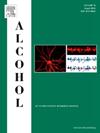探讨不确定性耐受对慢性疼痛和酒精使用障碍患者疼痛耐受性和渴望的调节作用。
IF 2.9
4区 医学
Q3 PHARMACOLOGY & PHARMACY
引用次数: 0
摘要
慢性疼痛(CP)和酒精使用障碍(AUD)经常同时发生,但其相互作用的心理因素尚不清楚。不确定性不耐受(IU)——一种在不可预测的情况下与痛苦有关的认知特征——可能会影响这些人群的疼痛管理和应对行为。本研究考察了IU是否能缓解CP和AUD患者对疼痛相关压力源的疼痛和酒精渴望反应。55名年龄在18-65岁的成年人入组,包括仅患有CP (n=20)、仅患有AUD (n=14)、CP+AUD (n=8)和健康对照(n=13)。参与者完成了IU的自我报告测量和耶鲁疼痛压力测试(YPST),该测试是冷压测试的一种改编,旨在引发与疼痛相关的压力。行为疼痛耐受性、主观疼痛和酒精渴望在两个实验阶段进行评估,一个是暴露在冰水压力源中,另一个是在温水控制条件下。暴露于疼痛相关的压力源显著降低了所有组的行为疼痛耐受性,增加了主观疼痛,也增加了对酒精的渴望,特别是在AUD患者中。IU调节了疼痛相关应激期间的疼痛体验:在CP+AUD组中,较高的IU与较低的疼痛耐受性相关,而在AUD组中,较高的IU与较强的疼痛耐受性相关。IU也能调节渴望反应,较高的IU预示着CP和AUD患者的渴望会增加。这些初步发现强调IU是一个潜在的治疗目标,表明旨在提高不确定性耐受性的干预措施可以增强弱势群体的疼痛应对能力,减少压力驱动的酒精寻求行为。本文章由计算机程序翻译,如有差异,请以英文原文为准。
Examining the moderating role of intolerance of uncertainty on pain tolerance and craving in patients with chronic pain and alcohol use disorder
Chronic pain (CP) and alcohol use disorder (AUD) frequently co-occur, yet the psychological factors underlying their interaction remain unclear. Intolerance of uncertainty (IU) – a cognitive trait linked to distress in unpredictable situations – may influence pain management and coping behaviors in these populations. This study examined whether IU moderates pain and alcohol craving responses to a pain-related stressor in individuals with CP and AUD. Fifty-five adults aged 18–65 years were enrolled, including individuals with CP only (n = 20), AUD only (n = 14), CP + AUD (n = 8), and healthy controls (n = 13). Participants completed a self-report measure of IU and the Yale Pain Stress Test (YPST), an adaptation of the Cold Pressor Test, designed to elicit pain-related stress. Behavioral pain tolerance, subjective pain and alcohol craving were assessed across two experimental sessions, one with exposure to an ice-cold water stressor and the second with a warm-water control condition. Exposure to the pain-related stressor significantly reduced behavioral pain tolerance and increased subjective pain across all groups, and also heightened alcohol craving, particularly in individuals with AUD. IU moderated the pain experience during pain-related stress: in the CP + AUD group, higher IU was associated with lower pain tolerance, whereas in the AUD group, higher IU was correlated with greater pain tolerance. IU also moderated craving responses, with higher IU predicting increased craving in individuals with both CP and AUD. These preliminary findings highlight IU as a potential treatment target, suggesting that interventions aimed at improving uncertainty tolerance may enhance pain coping and reduce stress-driven alcohol-seeking behaviors in vulnerable populations.
求助全文
通过发布文献求助,成功后即可免费获取论文全文。
去求助
来源期刊

Alcohol
医学-毒理学
CiteScore
4.60
自引率
4.30%
发文量
74
审稿时长
15.6 weeks
期刊介绍:
Alcohol is an international, peer-reviewed journal that is devoted to publishing multi-disciplinary biomedical research on all aspects of the actions or effects of alcohol on the nervous system or on other organ systems. Emphasis is given to studies into the causes and consequences of alcohol abuse and alcoholism, and biomedical aspects of diagnosis, etiology, treatment or prevention of alcohol-related health effects.
Intended for both research scientists and practicing clinicians, the journal publishes original research on the neurobiological, neurobehavioral, and pathophysiological processes associated with alcohol drinking, alcohol abuse, alcohol-seeking behavior, tolerance, dependence, withdrawal, protracted abstinence, and relapse. In addition, the journal reports studies on the effects alcohol on brain mechanisms of neuroplasticity over the life span, biological factors associated with adolescent alcohol abuse, pharmacotherapeutic strategies in the treatment of alcoholism, biological and biochemical markers of alcohol abuse and alcoholism, pathological effects of uncontrolled drinking, biomedical and molecular factors in the effects on liver, immune system, and other organ systems, and biomedical aspects of fetal alcohol spectrum disorder including mechanisms of damage, diagnosis and early detection, treatment, and prevention. Articles are published from all levels of biomedical inquiry, including the following: molecular and cellular studies of alcohol''s actions in vitro and in vivo; animal model studies of genetic, pharmacological, behavioral, developmental or pathophysiological aspects of alcohol; human studies of genetic, behavioral, cognitive, neuroimaging, or pathological aspects of alcohol drinking; clinical studies of diagnosis (including dual diagnosis), treatment, prevention, and epidemiology. The journal will publish 9 issues per year; the accepted abbreviation for Alcohol for bibliographic citation is Alcohol.
 求助内容:
求助内容: 应助结果提醒方式:
应助结果提醒方式:


